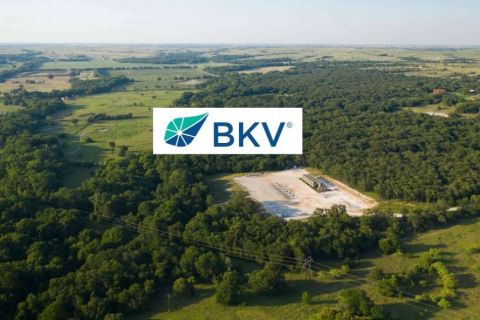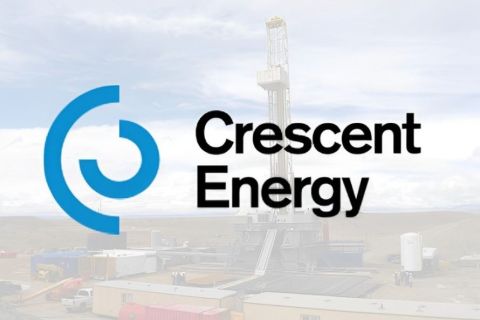
SAN ANTONIO – Lifting current crude oil export restrictions would help strengthen the U.S. economy, foster job creation and promote the efficient development of the domestic energy sector, according to Marathon Oil Corp.'s president and CEO Lee Tillman.
The sticking point, Tillman said, is that the U.S. consumer would not experience a negative impact if the restrictions are lifted.
“We can and should find a way to play a greater role contributing to that diversity by finding new ways to bring American crude oil to global markets,” Tillman said in the opening address at Hart Energy’s DUG Eagle Ford conference on Sept. 16. “We’re a nation with a history built on free trade, and I’m of the very strong belief that America is well-positioned to compete in the global oil and natural gas market.”
Glancing out from behind the lectern at almost 5,000 attendees, Tillman added, “I know you agree because you’ve seen the same data I’ve seen.”
The numbers are just too staggering to ignore.
In April, Texas crude oil production topped 3 million barrels per day (MMbbl/d) for the first time since the late 1970s. In the past three years,production has more than doubled. The growth, Tillman pointed out, was driven by the Eagle Ford, along with the Permian Basin. Also in April, Bakken production in North Dakota topped 1 MMbbl/d of crude for the first time in history. “Together, the two states provided nearly half of the country’s crude oil production for the month. It’s all pretty remarkable,” he said.
The “remarkable” factor, however, does not end with production. Last year, the U.S. oil and natural gas industry provided more than 9.8 million jobs, Tillman said, adding, “we delivered more than $86 million in revenue every day to the federal government. And, we represented 8% of the total U.S. economy.”
Tillman, a native Texan, reeled off some oil-soaked factoids about his home state. Texas leads the nation in job creation, and provided more than 400,000 jobs in the oil and gas sector in the first quarter of 2014, an increase of about 10% since the start of 2012. “Notably, Texas is poised for a fourth straight year of employment growth in 2014,” he said.
The resource plays—and the technology that gave them renewed life—represent “a step-change for our industry and for our economy,” Tillman said. “But our ability to continue to grow and our ability to continue to shape America’s and the world’s energy future depends on two things: capitalizing on opportunities and navigating the challenges.”
For Marathon (NYSE: MRO), opportunity starts with production strategy. “We’ve been systematically conducting pilots and delineation drilling across our three high-quality U.S. resource plays to aggressively test downspacing, enhanced well completions and co-development of additional horizons,” Tillman said.
Two weeks ago at an investor conference in New York, Tillman said Marathon announced that it has grown its net 2P unconventional resource by more than 20% since year-end 2013, to 3 billion oil-equivalent barrels.
Along with the resource growth, Marathon’s well inventory has increased to more than 4,600 net well locations across the Eagle Ford, Bakken and Oklahoma resource basins.
“Our tag line was more resource equals more inventory, which supports more drilling activity in our highest-return opportunities,” Tillman said. “And the impact on our company and our shareholders is significant. Notably, we expect a double-digit compound annual growth rate for our resource play production for 2015 to 2017, and we expect a high single-digit compound annual growth rate for total company production for the same period.”
In regard to “navigating the challenges,” Tillman spoke specifically of air quality, water management and roads.
“We must address such topics in the right way, and with a sense of urgency. We must put them into context, engage openly and honestly with those who are voicing concerns, demonstrate our ongoing commitment to safe and responsible operations and be solution-driven,” he said. “But perhaps most importantly: We must talk about what we’re doing in a meaningful, fact-based, credible way to our friends and supporters, to our neighbors who live near our operations, and to our skeptics.”
Regarding air quality, Tillman said Marathon is continuously evaluating its air emission-reduction strategies and technologies and becoming more efficient in its operations.
“Flaring is a very visible activity. This year, Marathon Oil continues to identify and prioritize significant flaring sources. We’re also participating with other companies to share best practices for reducing flaring in an effort to spread these practices throughout the Eagle Ford.”
Marathon is committed to minimizing flaring time when bringing a well online and installing infrastructure to transport gas to sales, Tillman said. “We now count that time in hours and have averaged less than seven hours of flaring per well this year before we’re able to send the gas to sales.”
Tillman talked about how Marathon is “employing best practices to be good stewards of water resources.”
Regarding its water use per well in Eagle Ford fracking operations, Marathon switched to a polymer gel mix that produces a thicker, more viscous fluid that can also carry more sand in the process, he said. Marathon currently uses brackish water for 75% of its water needs in Eagle Ford fracking, Tillman commented, even though brackish water wells are typically deeper and more expensive to drill than freshwater wells.
On the issue of roads, Tillman said, “It’s readily apparent that [the industry’s transportation need] has caused strains on local and county roads and other infrastructure. We’re working with elected officials, regulators and other community leaders to cooperatively address these issues and lessen the impacts.”
Marathon, according to Tillman, supports a proposed constitutional amendment—Proposition 1—that would provide billions more in much-needed transportation funding for Texas. If approved by voters on Nov. 4, Proposition 1 would authorize annual disbursements from the state’s oil and gas production tax collections, commonly known as the Rainy Day Fund, to the state’s highway funding.
Recommended Reading
Viper Energy Offers 10MM Shares to Help Pay for Permian Basin Acquisition
2024-09-12 - Viper Energy Inc., a Diamondback Energy subsidiary, will use anticipated proceeds of up to $476 million to help fund a $1.1 billion Midland Basin deal.
BKV Prices IPO at $270MM Nearly Two Years After First Filing
2024-09-25 - BKV Corp. priced its common shares at $18 each after and will begin trading on Sept. 26, about two years after the Denver company first filed for an IPO.
Companies Take Advantage of ABSs to Finance Acquisitions
2024-10-17 - Some companies have taken advantage of asset-backed securitizations to monetize some of their cash flows and better position themselves for a sale.
CSW Increases Common Stock Offering to Repay Debt
2024-09-05 - CSW Industries increased its offering of common stock from 1 million shares to 1.1 million shares at $285 per share.
Crescent Prices Additional Private Placement on Senior Notes Due 2033
2024-09-05 - Crescent Energy said it intends to use the net proceeds from this offering to repay a portion of the amounts outstanding under its revolving credit facility.
Comments
Add new comment
This conversation is moderated according to Hart Energy community rules. Please read the rules before joining the discussion. If you’re experiencing any technical problems, please contact our customer care team.





